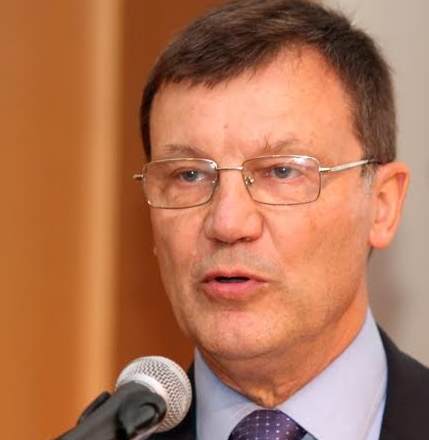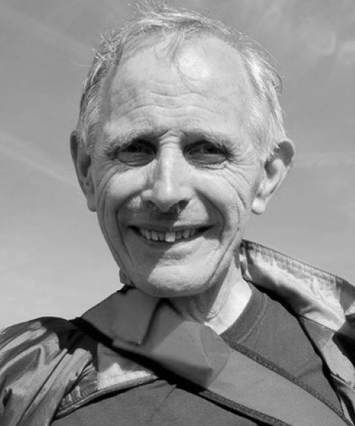Several people, for whom I have great gratitude, helped me to find my calling in life, as a journalist and author.
When I was a teenager, my late father, Neville, took me to see the plays of Peter Howard and Alan Thornhill at London’s (erstwhile) Westminster Theatre. I was impressed by them.
In my last year at the Nautical College, Pangbourne (now Pangbourne College) in 1964 I began to realise that I no longer wanted to join the Royal Navy, which had been the plan. I was too sea sick and too much of a landlubber! But what should I do in life instead?
My parents drove up to the college and took me out in the car. We parked in a layby and my father said: let’s listen to God and see if He has anything to say to you. So, much to my embarrassment, we sat there in silence. To my great surprise I had the unexpected thought to tell my father how much I enjoy the plays at the Westminster Theatre and that I would love to learn to write. (The playwright Peter Howard had been a Fleet Street journalist.)
To my father’s credit, he took this as the literal word of God to me. Okay, he said, you’d better stay another year at the college and do A level English. I had studied Maths and Physics till then. Through a series of circumstances, including an open English essay prize which I entered, the master in charge of A level English, Mr Walker, agreed to take me into his class. I scraped through the A level in one year, instead of the usual two. This vindicated my faith that I was on the right track.
A year later, my parents sent me an invitation to visit Tirley Garth, a country estate in Cheshire which was run by MRA (Moral Re-Armament). It was a centre where people from business and industry could meet in a spirit of trustbuilding between management and labour to heal class war. Aged 19, I went for a weekend to help in the construction of timber buildings in the estate which were being erected to provide accommodation. I enjoyed the weekend greatly, enough to want to go back for a week at the beginning of an international conference for young people that summer. Some 3,000 people attended over a period of six weeks.
On that second visit, I sat opposite an Oxford graduate, Patrick Colquhoun, at lunchtime. He had studied politics, philosophy and economics at Oxford. He asked me how long I had known about MRA. All my life, through my parents, I told him. So you’ve put life right in the light of the four absolute moral standards (honesty, purity, unselfishness and love, as yardsticks by which to measure one’s conduct), he asked. “Yes, but I could do it a lot better,” I replied. In other words, no! Okay, he said. Go away and think about it and we’ll go out in my car in a couple of days and you can tell me everything. Even then I didn’t realise how much Patrick’s direct approach would change the course of my life. Patrick talks about being a catalyst in a chemical reaction. This was the role he was playing in my life.
Two days later, we went out in his Austin Mini (kudos to him!) and he parked the car by the side of the country road above Tirley Garth. We had a time of silence and then he asked me what thoughts I had. “Stop biting my finger nails,” I replied. Oh, come on, there must be more to it than that, he replied. So we had another time of silence.
I had two clear thoughts: break off the relationship with the girl I had been going out with for the past three years but whom I had no intention of marrying; and, secondly, be honest with my parents about things they may or not have known about in my life, including the extent of my relationship with the girl. I told Patrick these two thoughts.
Then, to my surprise, he said, “Would you like to give your life to God?” I had been brought up with a Christian faith and believed that if there was a creator God behind the wonder that is the Universe, then God’s plan for one’s life would be the most fulfilling plan. But this was a theoretical belief and not a reality in my life. First I needed to be liberated from the things that were holding me back, including the dishonest and impure relationship with the girl.
I was now on top of a diving board and needed to take the plunge. So I said yes to Patrick, without having any inkling as to what would be involved. He said we should pray together. So I said a simple prayer: “Dear God, I give my life to you. Amen.” I found this surprisingly liberating as I realised that it no longer mattered what my friends thought of me. What mattered was what God thought about me!
I returned home to Selsey, near Chichester, and told my mother that I was going to break off the relationship with the girl. Yes, you do that and then come home for lunch, she replied matter-of-factly.
It turned out to be traumatic. We sat in my father’s car outside her grandmothers’ home and she realised I no longer wanted to go out with her. She had wanted us to marry and sobbed uncontrollably. I realised just how selfish and self-centred my relationship with her had been. But I knew I should no longer spin it out.
Years later I met her father, a journalist, standing at a bus stop in Fleet Street. I said in a tone of regret that I had treated his daughter very badly. Oh don’t worry, he replied. She is married and has had a child. I was greatly relieved.
Patrick Colquhoun and another friend, James Hore-Ruthven, encouraged me to stay on at Tirley Garth and help to create a new musical stage production of young people. It would travel the country to express the spirit of change and hope for the future. It was the age of the Beatles and music had a great appeal to young and old alike. The show was called “It’s Our Country, Jack!”, with a cast of 50 people. The title was supposed to be an antidote to the more cynical notion of “I’m all right, Jack!”, the title of a Peter Sellers film. Our show travelled around the UK for a year.
I had a harmonica in those days, and was the first cast member on stage at the beginning of the show. I would sit on a bollard at the back of the stage and play the opening bars of a rousing song which the rest of the cast sang as they came onto the stage.
The show had a strategic purpose as we aimed to reach out to the national executive members of the National Union of Seamen as we travelled to various port cities. They and dock workers had gone on strike over pay and conditions, and much of the UK’s shipping had come to a halt. Harold Wilson, the Prime Minister, said that the nation had only three weeks of food supplies left.
In the course of a year, cast members of the show met 43 out of the 46 members of the NUS, showing them a sense of solidarity and that there were people who cared for their concerns. In the end the basis of an agreement was hammered out in the home, in South East London, of one of the older cast members, in meetings with one of the shipping employers. It was an historic settlement. The BBC reported that suddenly the seamen went back to work, “and nobody knows why”!
I felt increasingly called to work on a full-time basis with MRA, and talked this over with James Hore-Ruthven. He encouraged me to share my decision with the rest of the cast in a “green room” meeting before a performance.
Another person who had a profound influence on the direction of my life was Rajmohan Gandhi, journalist, editor, author and a grandson of Mahatma Gandhi. He brought a travelling troupe of young Indians and Asians to the MRA centre in Caux, Switzerland, in the summer of 1968.
From the platform in the main meeting hall, he invited young Europeans to come and serve in his country to build a “clean, strong and united India”, including tackling corruption and communal tensions. India, he said, was developing under a democratic system of government at a time when China was developing under totalitarianism. Come and serve, Rajmohan Gandhi said. Come and give what you know and learn what you don’t know.
I was captivated. I was just about on the next flight, in my imagination. I was born a month before India gained her independence from the British Raj. As far as I knew there had been no relatives in our family history involved in India as colonialists. But this didn’t weigh with me anyway. I was simply captured by the vision that Rajmohan expressed.
In the end wiser heads prevailed over my enthusiasm. Russi Lala, a colleague of Rajmohan’s, who was a journalist and editor from Mumbai, visited London. He encouraged me to train in print production and design, so that I would have a skill to offer in India. So, with his advice, I stayed in London for the next two years and studied on a day-release course at the London College of Printing. This meant going for one day per week, whilst being mentored by publisher John Faber who took me under his wing. I learnt from him all about the printing processes, publishing and “print buying” from printers. I gained my City and Guilds certificate in Typographic Design, with a 90 per cent pass.
It had been a difficult decision to stay in London and sacrifice my initial ambition. However I had the thought that if I was ever going to be a writer it would be good to know how the written word is transferred into print. I phoned my father and he said he had the same thought, almost exactly word for word. I remember putting the phone down and laughing, knowing that it was the right thing to stay in London at that point.
Then in early 1971, Russi Lala wrote to say he thought the time had come for me to go to India. He invited me to join the staff of Himmat newsweekly in Mumbai. It was an English-language paper, edited by MRA people. Come for a year and train a young man from South India in the design and production of Himmat at the printing presses. Come and work yourself out of a job.
I travelled to India on 24 May 1971, aged 24, at the hottest time of year there. It was my first time out of Europe. In the end I stayed for three years without coming home to England: the cost of flights was too prohibitive in those days. I loved getting to know India and many Indian friends, who have remained friends for life. It was the beginning of countless visits back to India since then. It was also the beginning of putting my toes into the ocean of journalism.
I returned to the UK in 1974. I would go on to be a founding editor of For A Change magazine, with co-editors John Williams and Mary Lean, and start to write for national newspapers. I have also written four books on values in business and the economy. I owe a great debt of gratitude to all these friends who have influenced my life.
English


